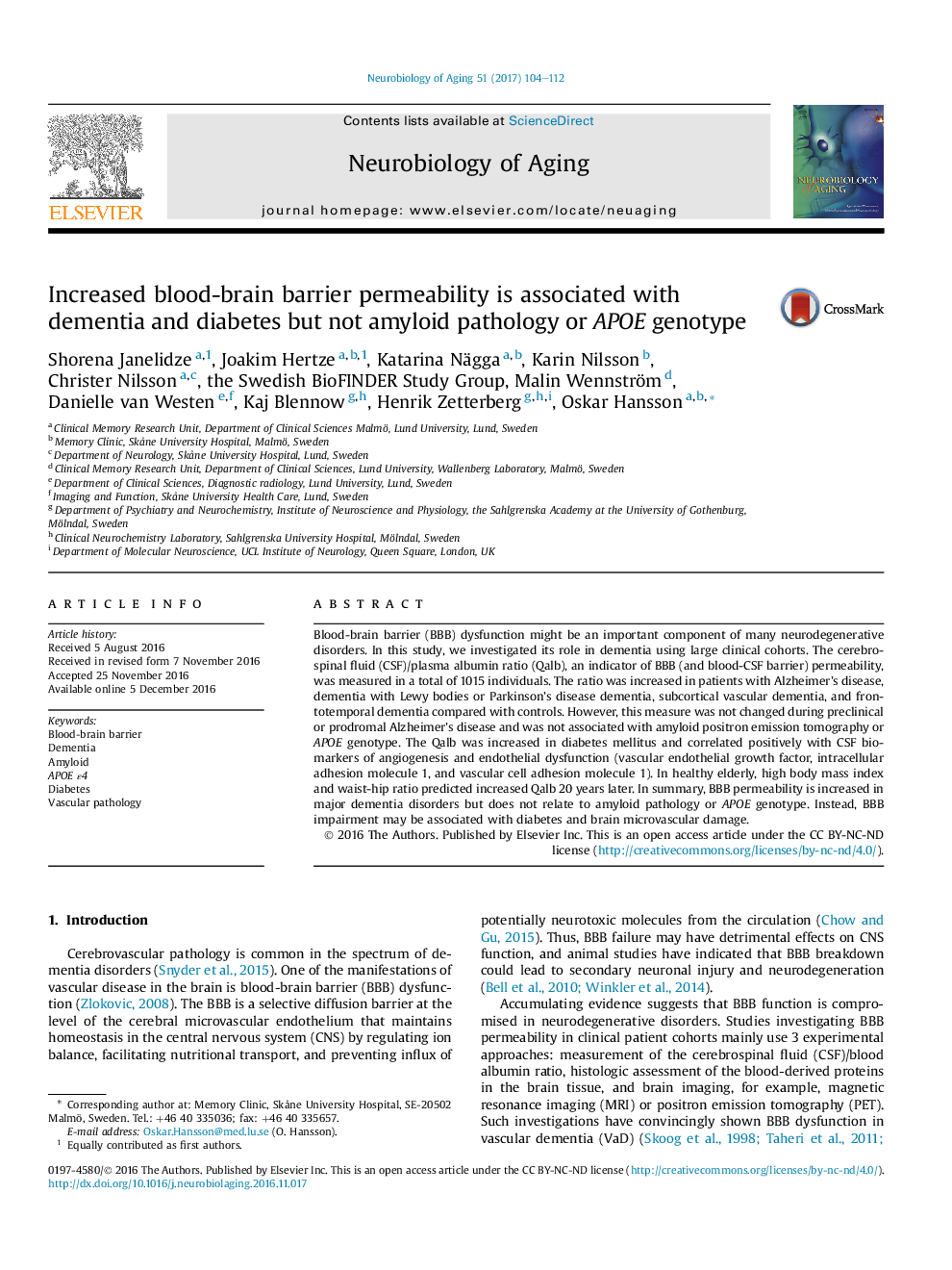| کد مقاله | کد نشریه | سال انتشار | مقاله انگلیسی | نسخه تمام متن |
|---|---|---|---|---|
| 4932780 | 1433533 | 2017 | 9 صفحه PDF | دانلود رایگان |

Blood-brain barrier (BBB) dysfunction might be an important component of many neurodegenerative disorders. In this study, we investigated its role in dementia using large clinical cohorts. The cerebrospinal fluid (CSF)/plasma albumin ratio (Qalb), an indicator of BBB (and blood-CSF barrier) permeability, was measured in a total of 1015 individuals. The ratio was increased in patients with Alzheimer's disease, dementia with Lewy bodies or Parkinson's disease dementia, subcortical vascular dementia, and frontotemporal dementia compared with controls. However, this measure was not changed during preclinical or prodromal Alzheimer's disease and was not associated with amyloid positron emission tomography or APOE genotype. The Qalb was increased in diabetes mellitus and correlated positively with CSF biomarkers of angiogenesis and endothelial dysfunction (vascular endothelial growth factor, intracellular adhesion molecule 1, and vascular cell adhesion molecule 1). In healthy elderly, high body mass index and waist-hip ratio predicted increased Qalb 20Â years later. In summary, BBB permeability is increased in major dementia disorders but does not relate to amyloid pathology or APOE genotype. Instead, BBB impairment may be associated with diabetes and brain microvascular damage.
Journal: Neurobiology of Aging - Volume 51, March 2017, Pages 104-112